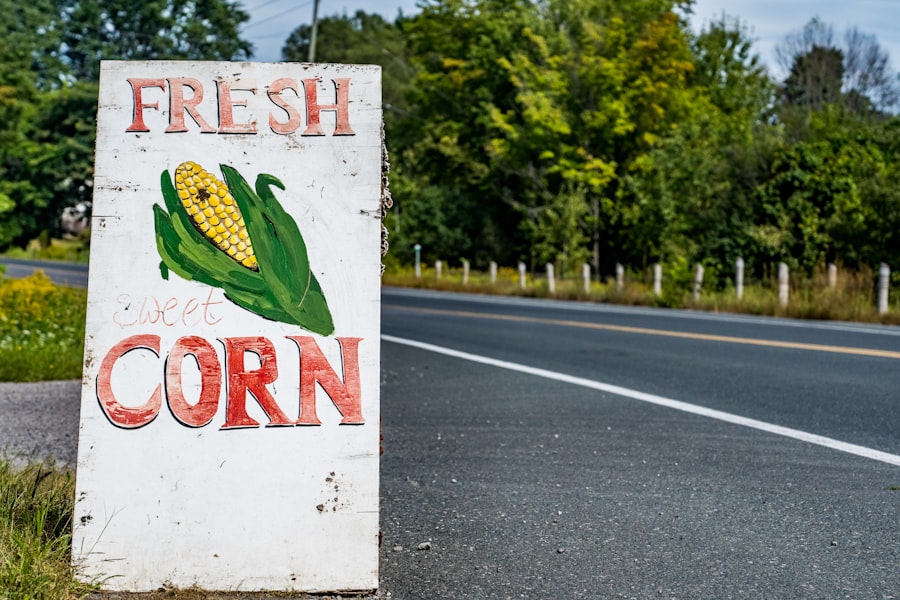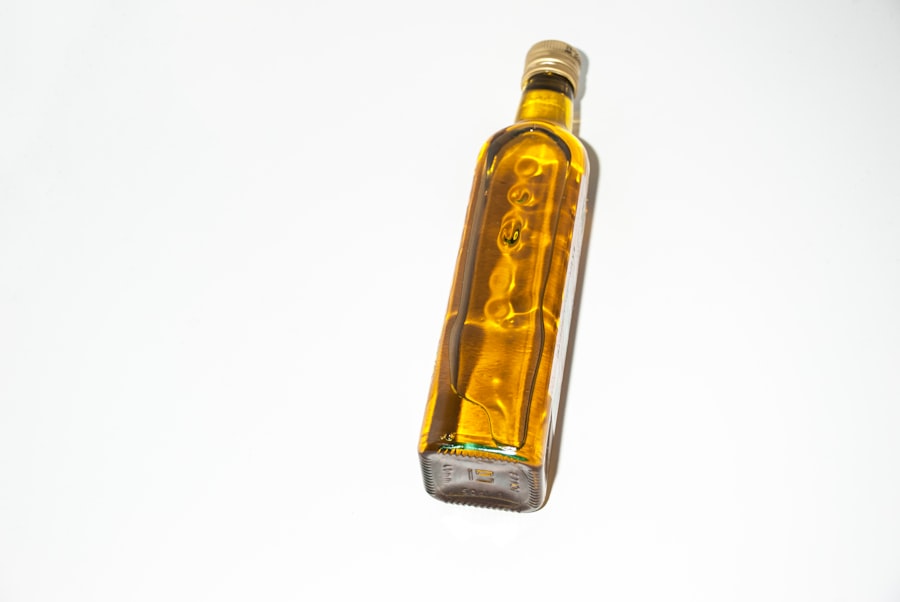The story of penicillin is one of serendipity and scientific ingenuity. Discovered in 1928 by Alexander Fleming, penicillin marked a revolutionary turning point in medicine. Fleming’s observation of a mold contaminating his petri dishes led to the identification of a substance that could kill bacteria.
This accidental discovery laid the groundwork for the development of antibiotics, which would go on to save countless lives. As you delve into the history of penicillin, you will find that its journey from a laboratory curiosity to a life-saving drug is filled with fascinating twists and turns. In the years following its discovery, penicillin was not immediately recognized for its potential.
It wasn’t until the early 1940s, during World War II, that the mass production of penicillin became a priority. The urgency of treating wounded soldiers propelled research and development efforts, leading to innovative fermentation techniques that allowed for large-scale production. By the end of the war, penicillin had become widely available, transforming the landscape of medicine and significantly reducing mortality rates from bacterial infections.
This historical backdrop sets the stage for understanding the ongoing evolution of penicillin production and the role of various substances, such as corn steep liquor, in enhancing its efficacy.
Key Takeaways
- Penicillin was discovered by Alexander Fleming in 1928, revolutionizing the treatment of bacterial infections.
- Corn steep liquor plays a crucial role in penicillin production as a nutrient source for the growth of penicillin-producing fungi.
- Corn steep liquor enhances penicillin production by providing essential nutrients such as nitrogen, vitamins, and minerals.
- The use of corn steep liquor in penicillin production offers advantages such as cost-effectiveness and increased availability of the antibiotic.
- The process of extracting penicillin from corn steep liquor involves filtration, extraction, and purification techniques to obtain the final product.
The Role of Corn Steep Liquor in Penicillin Production
Corn steep liquor (CSL) is a byproduct of corn processing that has gained recognition for its role in the production of penicillin. As you explore this topic, you will discover that CSL is rich in nutrients, making it an ideal medium for cultivating the Penicillium mold used in penicillin production. The use of CSL not only provides essential nutrients but also contributes to a more sustainable approach to antibiotic manufacturing.
By utilizing a byproduct that would otherwise go to waste, the pharmaceutical industry can reduce its environmental footprint while enhancing the efficiency of penicillin production. The incorporation of corn steep liquor into the fermentation process has been a game-changer for antibiotic production. Its high nitrogen content and other growth factors create an optimal environment for the Penicillium chrysogenum mold to thrive.
This mold is responsible for producing penicillin, and by providing it with the right nutrients, you can significantly increase the yield of this vital antibiotic. As you delve deeper into the specifics of CSL’s role, you will appreciate how this seemingly simple ingredient has become integral to modern penicillin production.
How Corn Steep Liquor Enhances Penicillin Production

Corn steep liquor enhances penicillin production through its unique composition, which includes amino acids, vitamins, and minerals essential for microbial growth. When you consider the fermentation process, it becomes clear that providing the right nutrients is crucial for maximizing output. The presence of these nutrients in CSL allows for a more robust growth of Penicillium chrysogenum, leading to higher concentrations of penicillin in the final product.
This relationship between CSL and penicillin production exemplifies how natural resources can be harnessed to improve pharmaceutical processes. Moreover, the use of corn steep liquor can lead to shorter fermentation times. With an optimal nutrient profile, the Penicillium mold can grow more rapidly and efficiently, resulting in quicker production cycles.
This efficiency not only benefits manufacturers by reducing costs but also ensures that antibiotics are available more swiftly to those in need. As you explore this synergy between CSL and penicillin production, you will gain insight into how innovative approaches can lead to significant advancements in healthcare.
The Advantages of Using Corn Steep Liquor in Penicillin Production
| Advantages of Using Corn Steep Liquor in Penicillin Production |
|---|
| 1. Cost-effective nutrient source |
| 2. Contains essential amino acids and vitamins |
| 3. Enhances penicillin production yield |
| 4. Acts as a natural chelating agent |
| 5. Environmentally friendly alternative to synthetic nutrients |
Utilizing corn steep liquor in penicillin production offers several advantages that extend beyond mere efficiency. One significant benefit is cost-effectiveness. Since CSL is a byproduct of corn processing, it is often less expensive than other nutrient sources traditionally used in fermentation processes.
This affordability allows pharmaceutical companies to lower their production costs while maintaining high-quality standards for their antibiotics. As you consider the economic implications, it becomes evident that CSL not only supports sustainable practices but also enhances accessibility to life-saving medications. In addition to cost savings, using corn steep liquor contributes to environmental sustainability.
By repurposing a byproduct that would otherwise be discarded, manufacturers can minimize waste and reduce their ecological impact. This aligns with a growing trend in the pharmaceutical industry toward greener practices and responsible sourcing of raw materials. As you reflect on these advantages, you will see how corn steep liquor represents a win-win solution: it supports efficient penicillin production while promoting environmental stewardship.
The Process of Extracting Penicillin from Corn Steep Liquor
The extraction of penicillin from corn steep liquor involves several intricate steps that highlight the sophistication of modern biotechnology. Initially, the fermentation process begins with inoculating a nutrient-rich medium containing CSL with Penicillium chrysogenum spores. As the mold grows and metabolizes the nutrients from CSL, it produces penicillin as a secondary metabolite.
This phase is critical, as it sets the stage for subsequent extraction processes. Once fermentation reaches its peak and penicillin concentrations are maximized, the next step involves separating the antibiotic from the fermentation broth. This is typically achieved through filtration and extraction techniques that isolate penicillin from other components present in the mixture.
You may find it fascinating that advanced methods such as liquid-liquid extraction or chromatography are often employed to purify penicillin further. The result is a high-quality product ready for formulation into various pharmaceutical forms, ensuring that patients receive effective treatment against bacterial infections.
The Impact of Corn Steep Liquor on Penicillin Cost and Availability

The integration of corn steep liquor into penicillin production has had a profound impact on both cost and availability. By leveraging this nutrient-rich byproduct, manufacturers can significantly reduce their overall production expenses. This reduction in costs translates into lower prices for consumers and healthcare providers alike, making antibiotics more accessible to those who need them most.
As you consider the implications of this economic shift, it becomes clear that CSL plays a vital role in democratizing access to essential medications.
With shorter fermentation times and higher yields, pharmaceutical companies can respond more swiftly to rising demands for antibiotics, particularly during public health crises or outbreaks of bacterial infections.
This responsiveness is crucial in ensuring that healthcare systems are equipped to handle challenges effectively. As you explore this dynamic landscape, you will appreciate how corn steep liquor not only influences production costs but also shapes the broader availability of life-saving treatments.
The Potential for Corn Steep Liquor in Antibiotic Development
Beyond its established role in penicillin production, corn steep liquor holds promise for future antibiotic development. Researchers are increasingly exploring its potential as a growth medium for other microorganisms involved in producing novel antibiotics. The rich nutrient profile of CSL may support the cultivation of diverse microbial strains that could yield new therapeutic agents capable of combating antibiotic-resistant bacteria—a pressing concern in modern medicine.
As you delve into this area of research, you will discover that scientists are investigating various strains of fungi and bacteria that thrive in CSL-enriched environments. By harnessing these organisms’ unique metabolic pathways, there is potential for discovering new antibiotics with different mechanisms of action. This exploration could lead to breakthroughs in treating infections that currently pose significant challenges due to resistance issues.
The future of antibiotic development may very well hinge on innovative approaches like utilizing corn steep liquor as a foundational resource.
The Environmental Benefits of Using Corn Steep Liquor in Penicillin Production
The environmental benefits associated with using corn steep liquor in penicillin production are noteworthy and align with global sustainability goals. By repurposing a byproduct from corn processing, manufacturers can significantly reduce waste generated during agricultural practices. This approach not only minimizes landfill contributions but also promotes a circular economy where resources are utilized efficiently.
Additionally, employing corn steep liquor can lead to reduced reliance on synthetic nutrient sources that may have adverse environmental impacts during their production and disposal. By choosing natural alternatives like CSL, pharmaceutical companies can lower their carbon footprint and contribute positively to environmental conservation efforts. As you reflect on these benefits, it becomes evident that integrating sustainable practices into antibiotic manufacturing is not just beneficial for business; it is essential for preserving our planet for future generations.
The Future of Penicillin Production with Corn Steep Liquor
Looking ahead, the future of penicillin production appears promising with continued advancements in utilizing corn steep liquor. Ongoing research into optimizing fermentation processes and enhancing nutrient profiles will likely yield even greater efficiencies and yields in antibiotic production. As technology evolves, you may witness innovations such as bioreactor designs specifically tailored for maximizing CSL’s benefits or genetic engineering techniques aimed at improving Penicillium strains’ productivity.
Moreover, as global health challenges persist—such as rising antibiotic resistance—there will be an increasing demand for effective solutions like penicillin. The ability to produce this vital antibiotic sustainably and cost-effectively through corn steep liquor will be crucial in meeting these demands while ensuring equitable access to treatment worldwide. As you contemplate these developments, it becomes clear that embracing innovative approaches will shape the future landscape of antibiotic production.
Challenges and Limitations of Using Corn Steep Liquor in Penicillin Production
Despite its many advantages, using corn steep liquor in penicillin production does come with challenges and limitations that warrant consideration. One primary concern is variability in the composition of CSL due to differences in corn processing methods or seasonal fluctuations in crop quality. This variability can impact fermentation outcomes and may require manufacturers to implement stringent quality control measures to ensure consistent results.
Additionally, while CSL provides numerous nutrients beneficial for microbial growth, it may not contain all necessary components required for optimal penicillin synthesis. In some cases, supplementary nutrients or adjustments to fermentation conditions may be needed to achieve desired yields. As you explore these challenges further, you will gain insight into how ongoing research aims to address these limitations through improved formulations or alternative nutrient sources.
Harnessing the Power of Corn Steep Liquor for Penicillin Production
In conclusion, harnessing the power of corn steep liquor represents a significant advancement in penicillin production that combines efficiency with sustainability. From its historical roots as a byproduct to its current role as an essential nutrient source for antibiotic manufacturing, CSL has proven itself invaluable in modern medicine’s fight against bacterial infections. As you reflect on this journey—from discovery to application—you will appreciate how innovative approaches can lead to transformative changes within industries.
The future holds great promise for further optimizing penicillin production through continued research into corn steep liquor’s potential applications and benefits. By embracing sustainable practices and leveraging natural resources effectively, we can ensure that life-saving antibiotics remain accessible while minimizing our environmental impact.
Corn steep liquor, a byproduct of the corn wet-milling process, played a crucial role in the mass production of penicillin during World War II. This nutrient-rich liquid served as an excellent growth medium for the Penicillium mold, significantly boosting the yield of penicillin and making it more accessible for medical use. For more fascinating insights into the historical impact of corn steep liquor on penicillin production, you can read a related article on Hey Did You Know This. This resource delves into the scientific advancements and industrial processes that revolutionized antibiotic production, highlighting the importance of agricultural byproducts in pharmaceutical development.
FAQs
What is corn steep liquor?
Corn steep liquor is a byproduct of the corn wet milling process. It is a liquid mixture that contains soluble components of corn such as proteins, amino acids, and vitamins.
How did corn steep liquor help penicillin production?
During World War II, when there was a shortage of traditional nutrient sources for penicillin production, scientists discovered that corn steep liquor could be used as a substitute. It provided the necessary nutrients for the growth of the penicillin mold, allowing for increased production of the antibiotic.
What specific nutrients in corn steep liquor are beneficial for penicillin production?
Corn steep liquor contains essential nutrients such as nitrogen, amino acids, vitamins, and minerals that are required for the growth and metabolism of the penicillin mold. These nutrients support the production of penicillin in fermentation processes.
Is corn steep liquor still used in penicillin production today?
Yes, corn steep liquor is still used in the production of penicillin and other antibiotics. It remains a valuable nutrient source for the fermentation process that is used to produce these life-saving medications.
